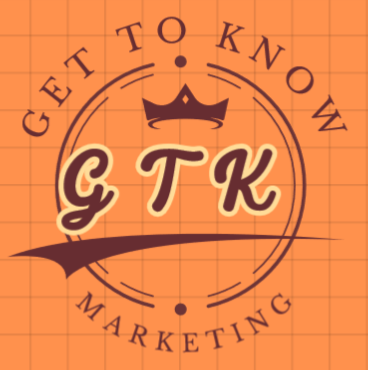In today’s fast-paced business environment, where hundreds or even thousands of candidates apply for a single job, recruiters are under immense pressure to make quick decisions. Enter AI-powered resume screening and candidate matching. These systems, which use advanced algorithms to sift through vast volumes of applications, have become essential tools for modern hiring. But while these platforms promise to streamline the hiring process and remove bias, there are important details that every recruiter and job seeker should understand.
How AI-Powered Resume Screening Works
At the core of these systems is an Applicant Tracking System (ATS) powered by artificial intelligence. Here’s a breakdown of how the technology works:
- Resume Parsing
AI starts by extracting and structuring data from resumes. Using Natural Language Processing (NLP), it organizes information into categories such as education, work experience, and skills, allowing the system to analyze a resume in a format it understands. - Keyword Matching
AI systems are designed to identify keywords related to the job description, such as “data analysis” or “project management.” These systems are intelligent enough to recognize related terms and acronyms (e.g., “PM” for “project manager”). - Contextual Analysis
Beyond simple keyword matching, more sophisticated AI tools evaluate the context in which keywords appear. This helps differentiate candidates who have actively used a skill from those who list it as a general proficiency. - Experience Level and Tenure
AI assesses the number of years candidates have spent in specific roles and their overall career progression, helping identify candidates with the necessary experience for a role. - Cultural Fit and Personality Traits
Some systems also analyze cultural fit by leveraging personality tests, linguistic analysis, or social media activity to predict whether a candidate aligns with a company’s values. - Candidate Ranking and Scoring
After parsing and analyzing resumes, AI ranks candidates based on their overall suitability for the job. This list helps recruiters focus on the most qualified candidates from the outset.
Key Criteria for Evaluation
AI-powered ATS systems rely on a range of factors when evaluating candidates, including:
- Skills: AI screens for required technical skills and certifications by cross-referencing job descriptions with resumes.
- Experience: The system evaluates the relevance and length of experience, ensuring candidates meet the job’s minimum qualifications.
- Education: AI verifies the level and type of education and training, ensuring it aligns with the job requirements.
- Soft Skills: Though harder for AI to measure, some systems attempt to infer soft skills such as communication, leadership, and collaboration based on context in job descriptions and experiences.
- Cultural Fit: By using personality assessments or analyzing language used in past roles, AI systems may also predict how well a candidate will integrate into a company’s work environment.
Pros of AI-Powered Resume Screening
- Efficiency and Speed
AI can analyze thousands of resumes in minutes, reducing the time needed to review applications and allowing recruiters to focus on higher-level decision-making. - Consistency
AI applies the same evaluation criteria to all resumes, ensuring consistent analysis without the fatigue or errors that human recruiters may encounter. - Reduced Bias
AI can help reduce certain forms of unconscious bias, as it evaluates candidates solely based on qualifications and skills rather than age, gender, or ethnicity—assuming the system is configured correctly. - Broader Reach
AI-powered systems can tap into a larger pool of candidates by searching through online job boards and professional networks like LinkedIn, increasing the chances of finding the best match for the role. - Scalability
For companies that receive large numbers of applications, AI offers a scalable solution to ensure that all candidates are given a fair evaluation.
Cons of AI-Powered Resume Screening
- Algorithmic Bias
AI can unintentionally perpetuate biases if trained on data that reflects past discriminatory hiring practices. For example, an algorithm might favor candidates from certain schools or backgrounds due to historical preferences in the company’s hiring data. - Over-Reliance on Keywords
AI systems often focus heavily on keyword matching, which may lead to false positives or negatives. Candidates who don’t use the exact terms from the job description may be overlooked, while those who strategically place keywords might be ranked higher without necessarily having the right experience. - Lack of Human Intuition
AI lacks the ability to evaluate nuances like enthusiasm, growth potential, or unique qualifications that make a candidate a good fit for the role. These are qualities that human recruiters can spot more easily. - Challenges with Soft Skills
While some AI systems attempt to assess soft skills, they generally fall short in this area. Leadership, communication, and problem-solving are difficult to quantify, and AI may struggle to capture these critical traits. - False Positives and Negatives
AI systems can rank candidates who don’t truly fit the job highly if their resumes contain the right keywords. Conversely, highly qualified candidates may be ranked lower if their resume doesn’t align perfectly with the AI’s criteria.
Balancing AI with Human Insight
While AI-powered resume screening and candidate matching can significantly improve the efficiency and accuracy of the hiring process, it’s important to remember that no technology is perfect. Human recruiters play a crucial role in adding nuance and judgment to hiring decisions. AI can provide a shortlist, but the final decision should ideally involve human assessment, especially for roles where soft skills, cultural fit, and leadership potential are important.
Conclusion: What’s Your Experience with AI in Hiring?
AI is undoubtedly changing the landscape of recruiting, offering incredible advantages in speed, efficiency, and consistency. However, like any tool, it comes with its challenges—especially around bias, keyword over-reliance, and soft skill evaluation.
Have you used AI-powered resume screening and candidate matching in your hiring process? We’d love to hear about your experience! Share your thoughts on how it has impacted your recruitment efforts, the challenges you’ve faced, or tips for making the most of these systems in the comments below. Your insights will help others navigate this rapidly evolving technology.
